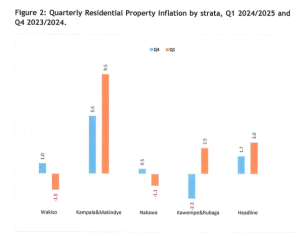Uganda has a rich cultural history, with over 50 ethnic groups. It gained independence from British colonial rule on October 9, 1962. The post-independence period saw various political challenges, including the dictatorship of Idi Amin in the 1970s.
Uganda is a landlocked countrylocated in East Africa, bordered by Kenya to the east, South Sudan to the north, the Democratic Republic of the Congo to the west, Rwanda to the southwest, and Tanzania to the south.
The country has a diverse landscape that includes the shores of Lake Victoria, mountainous regions such as the Rwenzori Mountains, and numerous national parks. It is also known for its wildlife, including mountain gorillas, elephants, andnumerous bird species.
Uganda’s economy is predominantly agricultural, with coffee, tea, and cotton being some of the key exports. In recent years, there has been an emphasis on developing the oil and gas industry.
Uganda is oftenreferred to as the “Pearl of Africa” due to its natural beauty and biodiversity. Key attractions include Bwindi Impenetrable National Park, known for its mountain gorillas, Murchison Falls National Park, and various cultural sites.
Key Facts about Uganda
Capital: Kampala �
Official Languages: English and Swahili
Currency: Ugandan Shilling (UGX)
Population: 45.9 Million Persons published by the National Population and Household Census (NPHC) 2024
Uganda’s Real Estate Market: Challenges and Opportunities
62 years post-independence presents a unique blend of challenges and opportunities. Reflecting on the current landscape, we can identify several key factors influencing the market.
Current Landscape
1. Growing Urbanization: Uganda is experiencing rapid urbanization,with substantial growth in cities like Kampala. This drives demand for residential, commercial, and mixed-use developments, presenting opportunities for investors and developers.
2. Infrastructure Development: The government has invested in infrastructure projects, such as roads, rail, and energy, which enhance accessibility and improve the investment climate. Ongoing initiatives like the Kampala-Jinja Expressway and developments in the oil and gas sector are expected to boost real estate demand.
3. Population Growth: A young and growing population fuels housing demand. However, this also leads to pressure on existing housing stock, necessitating the production of affordable housing solutions.
Challenges�
1. Access to Financing: The cost of borrowing in Uganda remains high, limiting access to financing for many potential homeowners and real estate developers. Most banks charge high interest rates, making it difficult for individuals and developers to embark on new projects.
2. Regulatory Environment: The real estate sector is often hampered by bureaucratic hurdles and a lack of transparency in regulatory processes.Delays in obtaining permits and inconsistentenforcement of regulations can deter investment.
3. Land Issues: Land ownership disputes, unclear land tenure systems, and the prevalence of informal settlements present significant challenges. The lack of a coherent land policy can lead to conflicts and uncertainty, discouraging investment.
4. Economic Fluctuations: The economy is sensitive to external factors, such as global commodity prices and trade dynamics. Economic instability can affect purchasing power and real estate investments, leading to uncertainty in the market.
Opportunities

1. Financing Options:Bank Loans: Traditional banking institutions offer mortgage products, but the uptake can be limited due to high interest rates and strict lending criteria.
Microfinance: This sector has grown, especially for lower-income segments, providing access to finance for smaller real estate developments.
Investment Funds: Real estate investment trusts (REITs) and private equity funds are emerging as new sources of capital for larger developments.
2. Affordable Housing: There is a significant shortage of affordable housing in urban areas. Developers whocan innovate and provide cost-effective housing solutions can tap into a lucrative market segment.
3. Sustainable Development: As global awareness of climate issues rises, there is an opportunity to adopt sustainable building practices. Eco-friendly developments can attract a new demographic of environmentally-conscious investors and buyers.
4. Investing in Technology: Adopting technology in real estate processes, such as property management, sales, and client engagement, can streamline operations and enhance customer experiences.
5. Diversified Property Types:There is a growing demand for various property types, including logistics hubs, retail spaces, and mixed-use developmentsdue to changing consumer behaviors and shopping patterns.
5. Government Initiatives: The Ugandan government has been involved in initiatives to improve infrastructure, whichin turn can stimulate real estate development. The National Development Plan often outlines priorities in housing, urban development, and investment incentives.
7. Investment Potential: International investors have shown interest in Uganda’s real estate due to its favorable demographics and growth potential. Areas such as Kampala, Entebbe, and emerging towns show promise for both residential and commercial investments.
Conclusion
As Uganda’s real estate market reflects on its 62 years of development, it stands at a crossroads rich with potential.While challenges like access to financing, regulatory constraints, and land issues must be addressed,the opportunities—especially in affordable housing, sustainability, and technological innovation—present avenues for growth. Stakeholders in Uganda’s real estate market must work collaboratively with the government, financial institutions, and communities to navigate these challenges and leverage opportunities for a sustainable and prosperous future.

